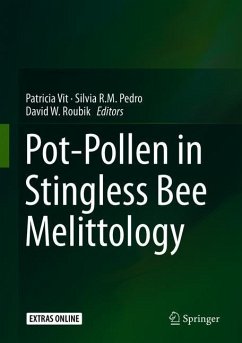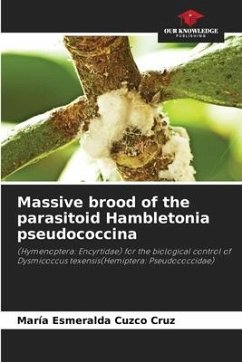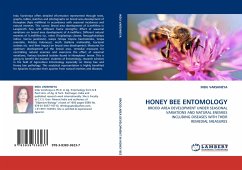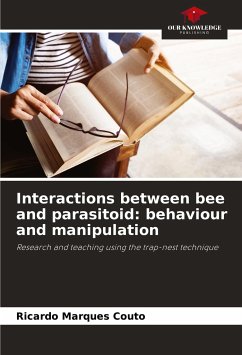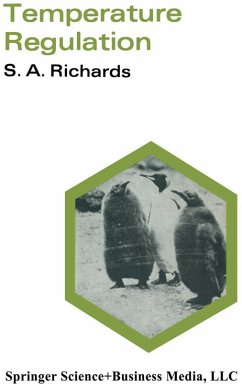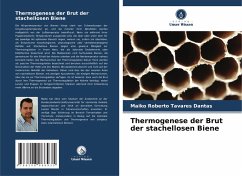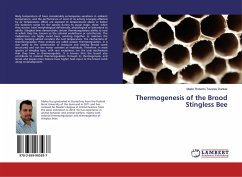
Thermogenesis of the Brood Stingless Bee
Versandkostenfrei!
Versandfertig in 6-10 Tagen
24,99 €
inkl. MwSt.

PAYBACK Punkte
12 °P sammeln!
Body temperature of bees considerably accompanies variations in ambient temperature, and the performance of most of its activity is largely affected by air temperature. When are exposed to temperatures above or below the optimum range for the species during its pupal stage, these, when they survive, have morphological deficiencies, physiological or behavioral as adults. Stingless bees demonstrate certain thermoregulatory ability to nest in which they live, known as the colonial endotherm or ectothermic. The meliponines are highly social bees, working together to maintain the colony, keeping al...
Body temperature of bees considerably accompanies variations in ambient temperature, and the performance of most of its activity is largely affected by air temperature. When are exposed to temperatures above or below the optimum range for the species during its pupal stage, these, when they survive, have morphological deficiencies, physiological or behavioral as adults. Stingless bees demonstrate certain thermoregulatory ability to nest in which they live, known as the colonial endotherm or ectothermic. The meliponines are highly social bees, working together to maintain the colony, keeping almost constant the nest temperature. The mechanisms of thermoregulation these animals are called passive thermoregulation, it is due solely to the construction of involucre and nesting (brood comb structures) and not the motor activities of individuals. Therefore, in most species of stingless bees, with rare exceptions, are the only mechanisms that they have to thermoregulate. It is known that the brood also contribute to colonial thermoregulation through its thermogenesis, and larvae and pupae more mature have higher heat input to the brood comb along its development.



